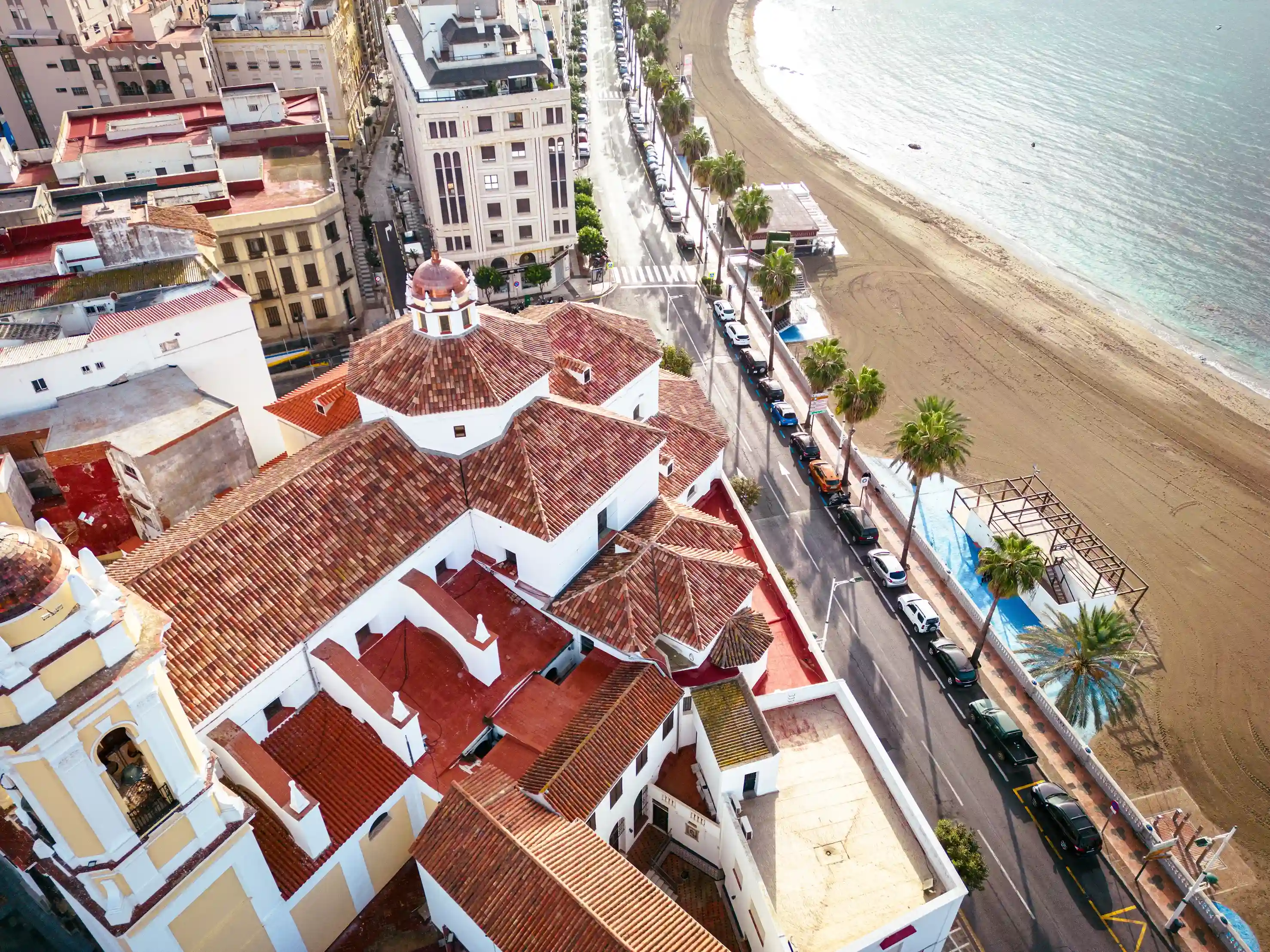Spain remains a top destination for UK citizens due to its favorable climate, affordable cost of living, and cultural appeal. However, Brexit has reshaped relocation dynamics, ending free movement and introducing new bureaucratic hurdles. In this article, we will discuss all the subtleties of relocating to Spain for UK residents.
Key Complexities for UK Citizen Relocation
Current political and economic developments in the EU landscape have impacted the relocation process from the UK. Key complexities include:
- Visa requirements. UK nationals now face Schengen Zone rules, limiting visa-free stays to 90 days (within the total annual period of 180 days). Longer stays require visas (e.g., work, non-lucrative, or retirement visas), each with specific financial, insurance, or employment criteria.
- Residency processes. Post-2021, UK citizens must apply for residency permits under stricter non-EU rules. Those expats who settled before 2021 may retain their rights under the Withdrawal Agreement, but they must provide proof of residency.
- Healthcare access. Access to the Spanish public system now often requires contributions, private insurance, or an S1 form for pensioners, replacing automatic EU-era entitlements.
- Lifestyle adjustments. Language barriers, tax obligations (e.g., wealth tax), driving license exchanges (now requiring a Spanish permit after 6 months), and property purchase nuances demand careful planning.
In this article, our experts demystify the post-Brexit challenges, offering clear and accurate advice on visas, residency, healthcare, taxes, and integration. Whether planning a move or already in Spain, this guide aims to streamline the adaptation process, ensuring informed decisions and compliance with new regulations.
Residency & Visas
Currently, UK citizens moving to Spain must apply for an appropriate visa before arrival. After arrival, they must register for residency and obtain a TIE (biometric residence card). Below, let’s delve deeper into the issue of obtaining permanent or temporary residency and discuss existing types of visas:
Pre-arrival Visa
UK citizens must now apply for a visa before relocating to Spain. Key options include:
- Non-lucrative visa. It is provided for retirees or those with sufficient savings. In this case, no work is permitted. Applicants should provide proof of income ≥€28,800/year.
- Work visa. A job offer from a Spanish employer and approval from immigration authorities is required to obtain this type of visa.
- Digital Nomad visa. This option is offered for remote workers. It is launched in 2023. It requires employment with non-Spanish companies and minimum income thresholds.
- Golden Visa. It’s a standard solution for property investors (for buying real estate for €500,000+).
To obtain pre-arrival visas, applicants should address the Spanish consulate in the UK and provide a comprehensive set of documents. Application processing can take 1–3 months.

Post-Arrival Residency Process
If UK citizens plan to stay in the country for more than six months, they must obtain a TIE (Tarjeta de Identidad de Extranjero) upon arrival. It’s a mandatory biometric residency card for expats who want to stay in Spain for a long. It’s valid for 1–5 years, depending on visa type. To apply for this card, applicants should go through the following steps:
- Register locally (empadronamiento).
- Apply at the Extranjería office within 30 days of arrival.
- Attend a biometrics appointment.
When the card expires, its holder can renew it. Renewals require proof of ongoing eligibility (e.g., sustained income).
Pre-2021 Residents: Withdrawal Agreement Protections
Those legally emigrating to Spain before January 1, 2021, retain rights to healthcare, work, and pensions under the EU-UK Withdrawal Agreement.
The Green Certificate (Certificado de Registro de Ciudadano de la Unión) was the residency document issued to EU/EEA citizens (including UK nationals) residing in Spain before Brexit. It served as proof of legal residency under EU freedom of movement rules. Currently, the paper-based Green Certificate remains valid, but it is less widely recognized abroad. Switching to a TIE is advised for smoother EU travel and access to services.
Family Reunification
Spouses, children under 21, and dependent parents can join applicants under strict conditions:
- proof of financial stability (e.g., income ≥150% of Spain’s minimum wage);
- adequate housing (certified via empadronamiento);
- family members must also apply for a TIE.
When relocating, UK expats face similar challenges. Document translations, notarizations, and bureaucratic delays are standard. Many of them face a language barrier since forms and processes often require Spanish proficiency or legal assistance. After all, residency triggers tax obligations.
Passports & Travel
British nationals must ensure their passports meet Schengen requirements. Your UK passport must be valid for at least 3 months beyond your intended departure date from the Schengen Area. It should have been issued no more than 10 years ago (even if it has extra validity months). Schengen border guards may deny entry if your passport does not meet these requirements. Check expiry and issue dates before booking travel.
EU Entry/Exit System (EES): What to Expect?
The upcoming EU Entry/Exit System (EES) will require biometric registration. Its introduction is scheduled for this year, but delays may occur. Non-resident UK citizens will need to scan their fingerprints and facial images upon their first entry to the Schengen Area after the EES starts. TIE holders are exempt (residency status is logged separately). The introduction of this procedure will initially result in longer queues as the systems roll out. Please note that overstaying the 90- or 180-day rule will be automatically flagged.
90/180-Day Schengen Rule
According to the 90/180-Day Schengen rule, UK citizens without Spanish residency can stay in the Schengen Area for up to 90 days within a 180-day period. Applications to Spain and all other Schengen countries are combined. Applicants can use online calculators (e.g., Schengen Calculator) to track stays. Please note that residents with a biometric identification card (TIE) are exempt from this rule and can reside in Spain indefinitely.
Traveling with Children

Notarized permission is required if a child travels abroad without both parents (e.g., on school trips or holidays with one parent). In this case, the following pack of documents must be provided:
- parent/guardian consent (translated into Spanish if necessary);
- copies of parents’ passports;
- travel dates and destinations.
Travelers can notarize them in Spain (certificado de permiso de viaje) or at a UK notary.
Emergency Travel Documents
If your passport is lost or stolen in Spain, apply for an Emergency Travel Document (ETD) at the British Embassy or Consulate. ETDs are valid only for direct return to the UK. Biometric registration may still be required when exiting Spain, so report lost passports immediately.
Healthcare
Navigating a Spanish healthcare system post-Brexit requires understanding new rules, insurance requirements, and registration processes. To access the Spanish public healthcare system (Sistema Nacional de Salud), you need to go through the following steps:
Retiring individuals and pensioners use the S1 form (issued by the UK) to register for state healthcare. If not eligible for S1 or employment-based coverage, non-working residents must pay a monthly fee of approximately €60–200, depending on their age, for convenience. Alternatively, they can rely on private health insurance (required for visas like the non-lucrative visa).
- Register as a resident (obtain a TIE).
- Get a social security number (número de afiliación) if employed or self-employed (through your employer or Tesorería General de la Seguridad Social).
- Provide proof of empadronamiento (local address registration).
Retiring individuals and pensioners use the S1 form (issued by the UK) to register for state healthcare. If not eligible for S1 or employment-based coverage, non-working residents must pay a monthly fee of approximately €60–200, depending on their age, for convenience. Alternatively, they can rely on private health insurance (required for visas like the non-lucrative visa).
EHIC/GHIC Cards: Limited Use
EHIC (European Health Insurance Card) and GHIC (Global Health Insurance Card) are only valid for temporary stays (e.g., holidays, short-term study). They are not sufficient for residents; you must register for Spanish healthcare. This option is particularly helpful for emergency care while traveling in the European Union.
Private Health Insurance Requirements
Non-lucrative, student and some work visas require comprehensive private insurance with no co-payments and full coverage in Spain. The minimum coverage is €30,000 per year, including repatriation.
Digital Nomads and remote workers typically require private insurance unless a public system covers them.
EU students (pre-2021) may use EHIC, but most UK students now need private insurance. Check if your Spanish university provides a policy.
UK employees seconded to Spain under the Withdrawal Agreement can use the UK-issued A1 form to access public healthcare in Spain.
Digital Nomads and remote workers typically require private insurance unless a public system covers them.
EU students (pre-2021) may use EHIC, but most UK students now need private insurance. Check if your Spanish university provides a policy.
UK employees seconded to Spain under the Withdrawal Agreement can use the UK-issued A1 form to access public healthcare in Spain.

Work & Study
Non-lucrative, student and some work visas require comprehensive private insurance with no co-payments and full coverage in Spain. The minimum coverage is €30,000 per year, including repatriation.
Digital Nomads and remote workers typically require private insurance unless a public system covers them.
EU students (pre-2021) may use EHIC, but most UK students now need private insurance. Check if your Spanish university provides a policy.
UK employees seconded to Spain under the Withdrawal Agreement can use the UK-issued A1 form to access public healthcare in Spain.
Digital Nomads and remote workers typically require private insurance unless a public system covers them.
EU students (pre-2021) may use EHIC, but most UK students now need private insurance. Check if your Spanish university provides a policy.
UK employees seconded to Spain under the Withdrawal Agreement can use the UK-issued A1 form to access public healthcare in Spain.
Student Visas & Higher Education
To apply for education, students should provide:
These documents are required for admission to any educational institution in the country.
- proof of enrollment at a Spanish institution (public/private university, language school);
- evidence of funds (€600–1,000/month, depending on region);
- private health insurance (unless covered by the public system via family ties).
These documents are required for admission to any educational institution in the country.
Fees & Scholarships
Note that non-EU student fees are up to 3x higher than pre-Brexit rates (e.g., €2,000–€4,000/year for public universities). As for scholarships, EU-funded programs (e.g., Erasmus+) are unavailable primarily to UK students; expats should seek UK-Spain bilateral grants or university-specific aid.
Part-Time Work for Students
Student visa holders can work up to 20 hours per week alongside their studies. Employers must notify immigration authorities.
Please note that the language is required for studying or working in Spain. Spanish proficiency (B1/B2 level) is particularly essential for professions that require frequent interaction with customers. For students, most undergraduate courses are taught in Spanish; postgraduate programs may offer English options.
When applying for education or work, UK expats face common challenges. Qualification recognition can take 6–12 months, so players should initiate the process well in advance. Translation and legalization of documents require a fee (€50–200 per item). Non-EU workers may face preference for EU candidates in some sectors.
Relocating to Spain as a UK citizen after Brexit requires careful planning to address the new legal, financial, and administrative realities. While post-Brexit Spain demands more paperwork and preparation, thorough research and professional support can turn challenges into opportunities. However, once expats overcome the transition period and secure their legal footing, they will be free to enjoy Spain’s vibrant culture, climate, and quality of life.





